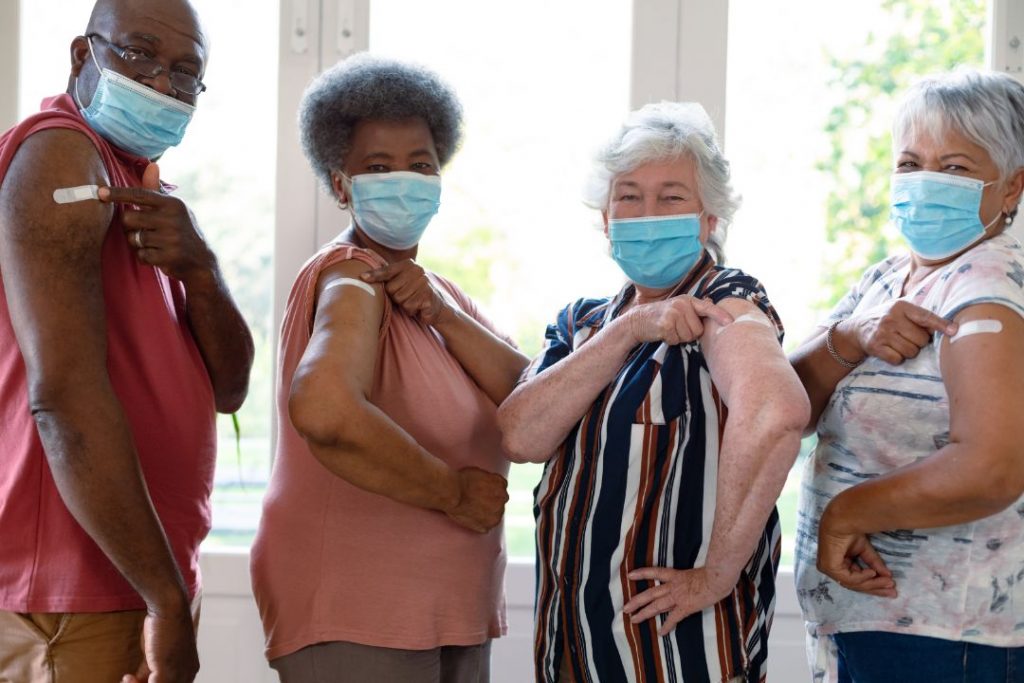Aging gracefully is a remarkable feat filled with wisdom and experiences. However, it also presents unique challenges, especially concerning health. Maintaining a robust immune system is one of the most critical aspects of senior health. During flu season, this becomes even more vital. The flu can be particularly harsh on older adults, so bolstering their defenses is imperative. But how exactly can we strengthen the immunity of our seniors? This guide offers insights into practical and effective methods to keep the elderly healthy and vibrant through the chilly months.
Understanding Immunity in the Elderly
The immune system is a complex network to defend the body against harmful invaders. With age, however, this intricate system changes. The body’s ability to produce new immune cells starts to decline, and its response to infections can weaken. This is why older adults are more susceptible to illnesses like the flu.
But it’s not all concerning news. Understanding these changes can empower seniors and their caregivers to take proactive steps. Knowledge is the first line of defense. Let’s explore how the immune system functions and evolves with age, setting the foundation for strategies to enhance its performance.
Nutritional Strategies for a Stronger Immune System

Nutrition plays a pivotal role in maintaining a healthy immune system. For the elderly, consuming a balanced diet rich in vitamins and minerals is essential. Key nutrients such as Vitamin C, Vitamin D, and zinc can significantly enhance immune function.
Incorporating foods like citrus fruits, leafy greens, and nuts into daily meals can provide these vital nutrients. Additionally, probiotics in yogurt and fermented foods support gut health, closely linked to the immune system.
Hydration is equally important. Water facilitates the distribution of nutrients to cells and aids in eliminating toxins. Seniors should aim for a diet that meets their nutritional needs and promotes overall well-being. By prioritizing these dietary elements, they can fortify their immune defenses.
Lifestyle Recommendations for Immune Support
Beyond nutrition, lifestyle choices considerably impact the immune system. Regular physical activity, for instance, can enhance circulation, allowing immune cells to move freely throughout the body. Gentle exercises like walking, swimming, or tai chi are excellent options for seniors.
Stress management is another crucial factor. High-stress levels can suppress immune function, making relaxation techniques such as meditation, yoga, or even listening to music beneficial. Sleep is often overlooked, yet it is vital for immune health. Ensuring adequate rest helps the body repair and regenerate, keeping defenses strong.
By integrating these lifestyle habits, seniors can create a holistic approach to health that naturally supports their immune system. It’s about finding a balance that suits their lifestyle while promoting longevity and vitality.
Vaccination Guidance for the Elderly

Vaccinations are a powerful tool in disease prevention, particularly for the elderly. The flu vaccine is highly recommended as it significantly reduces the risk of flu-related complications. Additionally, pneumococcal and shingles vaccines offer further protection against common diseases that can impact older adults.
Consulting with healthcare providers ensures seniors receive vaccinations tailored to their health needs. Staying informed about the latest recommendations and vaccine schedules is essential for proactive health management.
By prioritizing vaccinations, seniors can add an extra layer of defense during flu season, contributing to a comprehensive strategy for safeguarding their health.
Incorporating these strategies into daily life can make a substantial difference in the health and well-being of seniors during flu season. By understanding the changes in the immune system, adopting nutritional and lifestyle habits, and staying up-to-date with vaccinations, the elderly can enhance their resilience against illnesses.
Taking proactive steps today can lead to a healthier tomorrow. Encourage seniors to engage in these practices and seek guidance from healthcare professionals when needed. Together, we can help them enjoy their golden years with vigor and vitality. Reaching out to health experts can be a beneficial next step for further resources and personalized advice.




